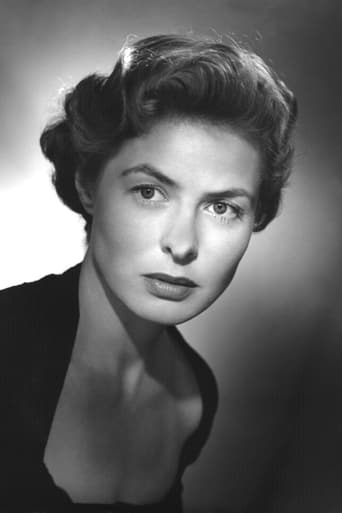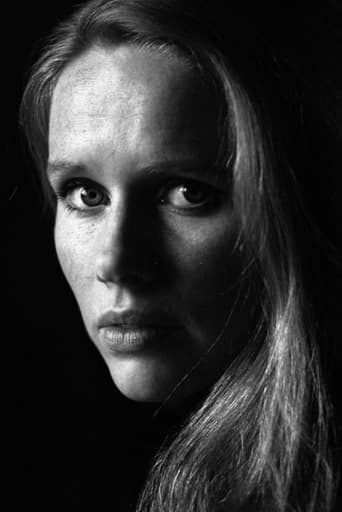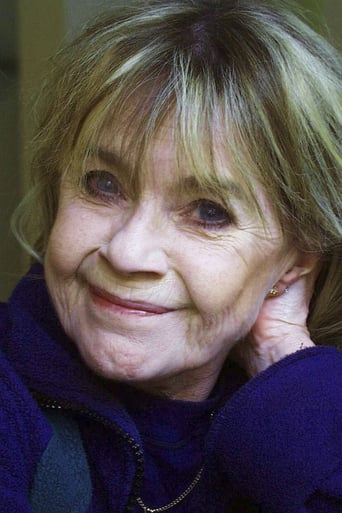Rijndri
Load of rubbish!!
Mandeep Tyson
The acting in this movie is really good.
Deanna
There are moments in this movie where the great movie it could've been peek out... They're fleeting, here, but they're worth savoring, and they happen often enough to make it worth your while.
Fleur
Actress is magnificent and exudes a hypnotic screen presence in this affecting drama.
Martin Bradley
Ingmar Bergman shot "Autumn Sonata" in ravishing color, (Sven Nykvist again was his DoP), and set it in the present but it may as well have been in black and white and set a hundred or so years ago since this is one of his most rigorous films, seen almost entirely in close-up. It's about the relationships between a mother and her daughter, (two daughters if you count the girl in near vegetative state upstairs), and the great and painful chasm that exists between them. The mother is a great concert pianist, poised, self-assured and frostier than any ice maiden and she is played by Ingrid Bergman, working with the director for the first time and giving a magnificent performance. The daughter is the mousy, timorous wife of a vicar until one extraordinary night she roars and pours out all the bile she has inside her and she is played superbly by Liv Ullmann.To say that the characters in Bergman's films don't speak or act the way 'real' people do is like saying Shakespeare's characters don't behave like people do in 'real' situations. It doesn't matter a damn; as with Shakespeare, Bergman's characters bear their souls to us and this greatest of actor's directors draws performances from his players that go beyond mere acting allowing us to get under their skins and inside their heads.There are a number of characters in this piece but most of them are glimpsed only in the background. Fundamentally this is a sonata for two people and both Bergman and Ullmann have seldom been better. It was Bergman who won all the awards and got the Oscar nomination but Ullmann, too, was equally deserving of recognition. If it isn't quite the masterpiece it might have been, (there are times it does feel a bit schematic and even predictable), it is nevertheless a major work of art and an essential work in both Bergman canons.
Howlin Wolf
All the heavy-hitters are here: Abandonment messing up family dynamics, repressed emotion breeding resentment, and pushy parenting and responsibility destroying a child's freedom to forge their own path in life... Lots of heavy emotional recriminations, shouting and crying scenes...To some it may be too heavy and dark, but I don't know... I just like movies where an estranged family member wanders back into the fold and sets to right old grievances. That would never happen to me, since I prefer to get things off my chest immediately - but on screen, it makes for great drama to see complacency shattered!Seeing Liv Ullman and Ingrid Bergman going toe-to-toe with each other is an acting aficionado's paradise.
kapelusznik18
***SPOILERS*** It's the autumn of her life as famed concert pianist Charlotte Andergast, Ingrid Bergman, decides to patch things up with her estranged daughter Eve, Liv Ullmann, whom she hasn't seen in seven years. At first happy to see Eve, who's clergyman husband Viktor played by Halvar Bjork seems to go out of his way to avoid her, Charlotte is stunned to find out that her other daughter, who's suffering from brain damage, Helena, Lena Lyman, is living under the same roof that both Eve & Viktor are. It was Helena that Charlotte had committed when she was in her teens to a mental institution for life because of her mental disability. Things soon get a bit sticky when Eve who feels that her life had been destroyed by her mother's absence, playing in concerts all over Europe, now lets Charlotte have it in how unloving she was towards her and the mentally ill kid sister of hers Helena.With Viktor drinking his brandy and smoking his pipe and Helena falling out of her bed and almost cracking her skull open mother & daughter, Charlotte & Eve, have it out in a night long discussion in how their lives were messed up by each other not showing the both love and respect for themselves all those years together. It's Eve who ends up getting the upper hand in the conversation in getting Charlotte to admit that she was more interested in her career as a concert pianist then in her two daughters as well as live in lover Leonardo, Georg Lokkeberg, who after putting up with her for almost 20 finally and blissfully, in not having to put up with her anymore, passed away from cancer six months ago.After an all night verbal slug-fest both Eve & Charlotte decided to bury the hatchet, in the sand not in each other heads, and let bygones by bygones and start all over again as if nothing happened in the past. Later after Charlotte left Eve gave her husband Viktor who was neutral in the entire matter a letter of forgiveness to her mother for everything bad she said about her. It's now up to Charlotte to do the same in asking for forgiveness from Eve as well as the mentally damaged Helena for all the bad things she did to them while they were still together. And undoubtedly in what we saw in the movie up until then, with Charlotte in tears in knowing what she did, she definitely will.
Sindre Kaspersen
Swedish screenwriter, playwright, producer and director Ingmar Bergman's 39th feature film which he wrote, is a West-Germany production which premiered in Stockholm, Sweden. It was shot at a film studio in Oslo, Norway during the period when the director was in exile due to his conflicts with the Swedish Government, and produced by American producer Richard Brick, Russian-born English film producer Lew Grade (1906-1998), Austrian-born Swedish film producer Katinka Faragó and American film producer Martin Starger. It tells the story about Charlotte Andergast, a world renowned concert pianist who after seven years abroad visits her daughter Eva who lives on the countryside with her husband Victor who is a preacher and her multi-disabled sister Helena who Eva brought home from the institution her mother had placed her in after abandoning them to pursue her career.Distinctly and precisely directed by filmmaker Ingmar Bergman, this condensed and finely paced psychological character-piece draws an incisive portrayal of a materialistic artist's afflicting relationship with the daughter she has neglected for many years and her struggle to redeem herself and gain her religious daughter's forgiveness. While notable for it's naturalistic milieu depictions, prominent set design by production designer Anna Asp, cinematography by cinematographer Sven Nykvist (1922-2006), costume design by Swedish costume designer Inger Pehrsson and use of music, this dialog-driven, existentialistic and humane chamber-piece depicts two converging and deeply internal studies of character.This atmospheric, straightforward and concentrated story about a heart- to-heart conversation during one autumn night between a reunited daughter and mother, is impelled and reinforced by it's emotional depth, substantial character-development, riveting dialog, cogent narrative structure, the profound acting performances by Norwegian actress Liv Ullmann, Swedish actress Ingrid Bergman (1915-1982) in her next to last acting role and the fine supporting acting performances by Swedish actor Halvar Björk (1928-2000) and Swedish actress Lena Nyman (1944-2011). A consistently involving and masterful melodrama which gained, among other awards, the NSFC Award for Best Actress Ingrid Bergman at the 13th National Society of Film Critics Awards in 197 and the NBR Award for Best Director Ingmar Bergman at the 50th National Board of Review Awards in 1978.








